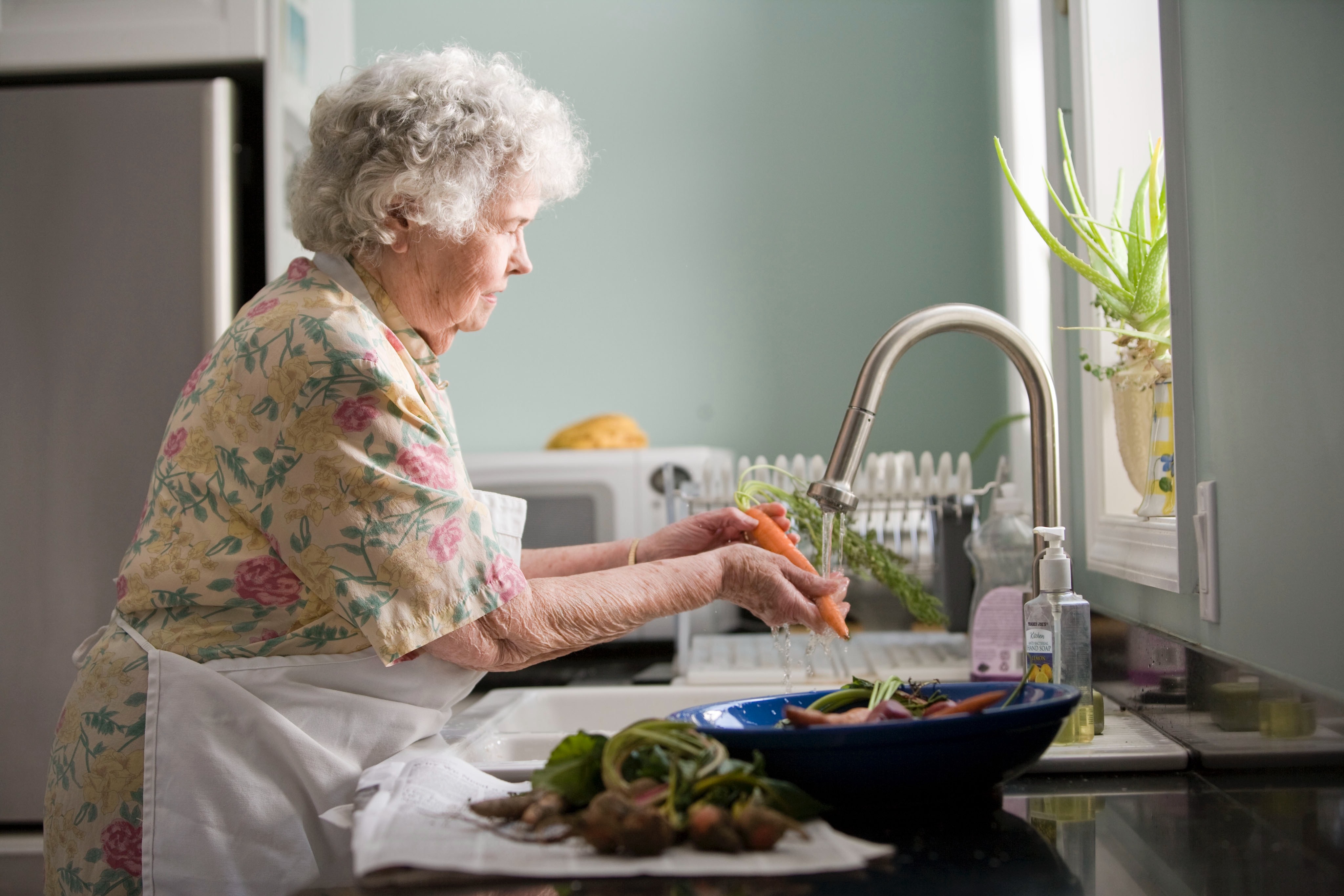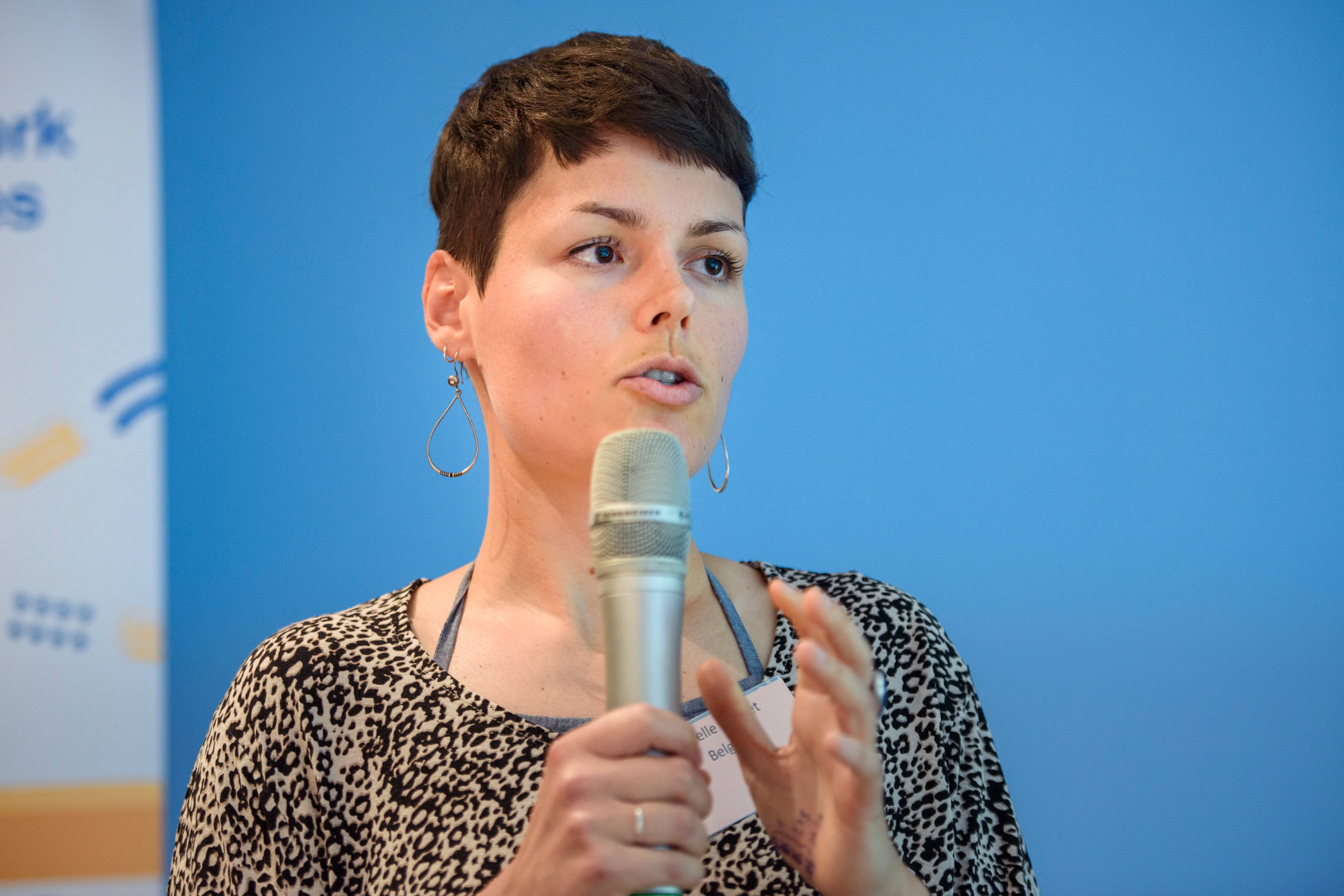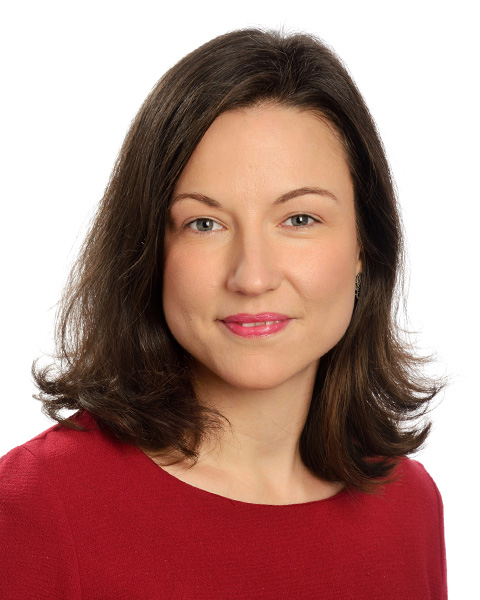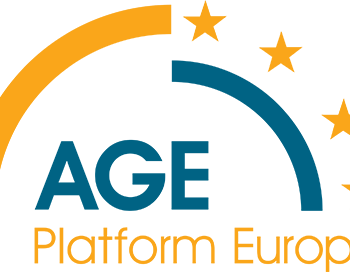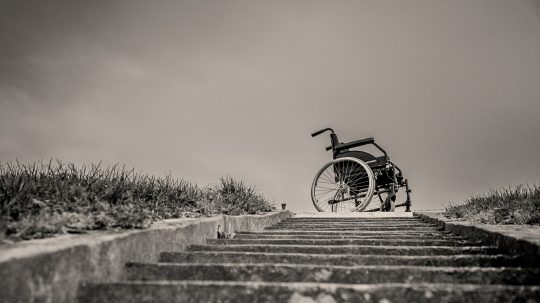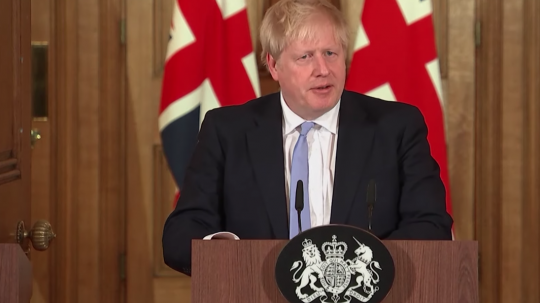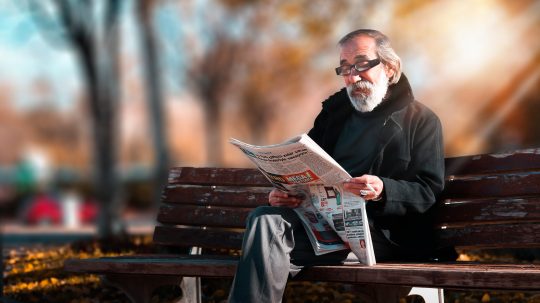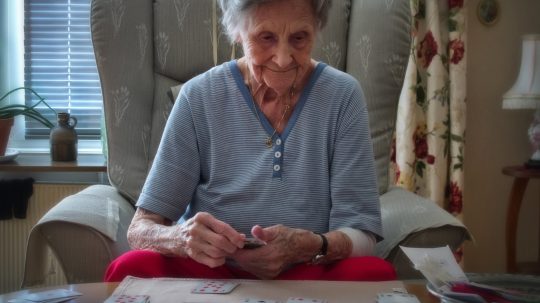Older people are at risk of suffering worse outcomes amid the Covid-19 pandemic. But it is vital we acknowledge more than just their vulnerability.
When it was revealed last month that the UK government might ask over-70s to stay in self-isolation for four months, Dr Malcolm Fisk was dismayed.
“Older people should be targeted for speedy testing and treatment not house arrest!” the 70-year-old said. He is among a number of older people grappling with being classified as “vulnerable”, during the coronavirus crisis, when they do not see themselves as such.
The UK has now entered another three weeks of lockdown without a clear “exit strategy”. Leaked plans reported by Buzzfeed News suggest that over-70s, among other high-risk groups, could be kept under lockdown for up to 12 to 18 months until a vaccine is found.
Keeping only one section of the population under confinement would not only be discriminatory, it would also deprive society of many individuals who are active and support the economy, their families and communities. “The economy will not grow as they want if older persons are not included; we are part of the recovery process,” said Elizabeth Sclater of the Older Women’s Network.
No one is invincible
More than 95 percent of coronavirus-related deaths in Europe are in people aged over 60, according to World Health Organization figures released this month. Eight out of ten people to die had pre-existing conditions, such as cardiovascular disease, hypertension and diabetes.
These figures also tell us that 10 percent of patients will need to be admitted to an intensive care unit. Healthcare systems can become overwhelmed, depending on how fast the virus spreads, leaving medics with difficult dilemmas about who to treat.
Vulnerability comes at all ages though. Stories of centenarians recovering from the virus or reports of children and young adults’ suffering of severe consequences following a Covid-19 infection should alert us that age is a poor indicator of our bodies’ capacity to respond to the present infection.
Although the share of persons living with pre-existing conditions might be higher among older persons – thus making them more at risk – the criterion of age itself does not suffice to decide on a person’s clinical life expectancy.
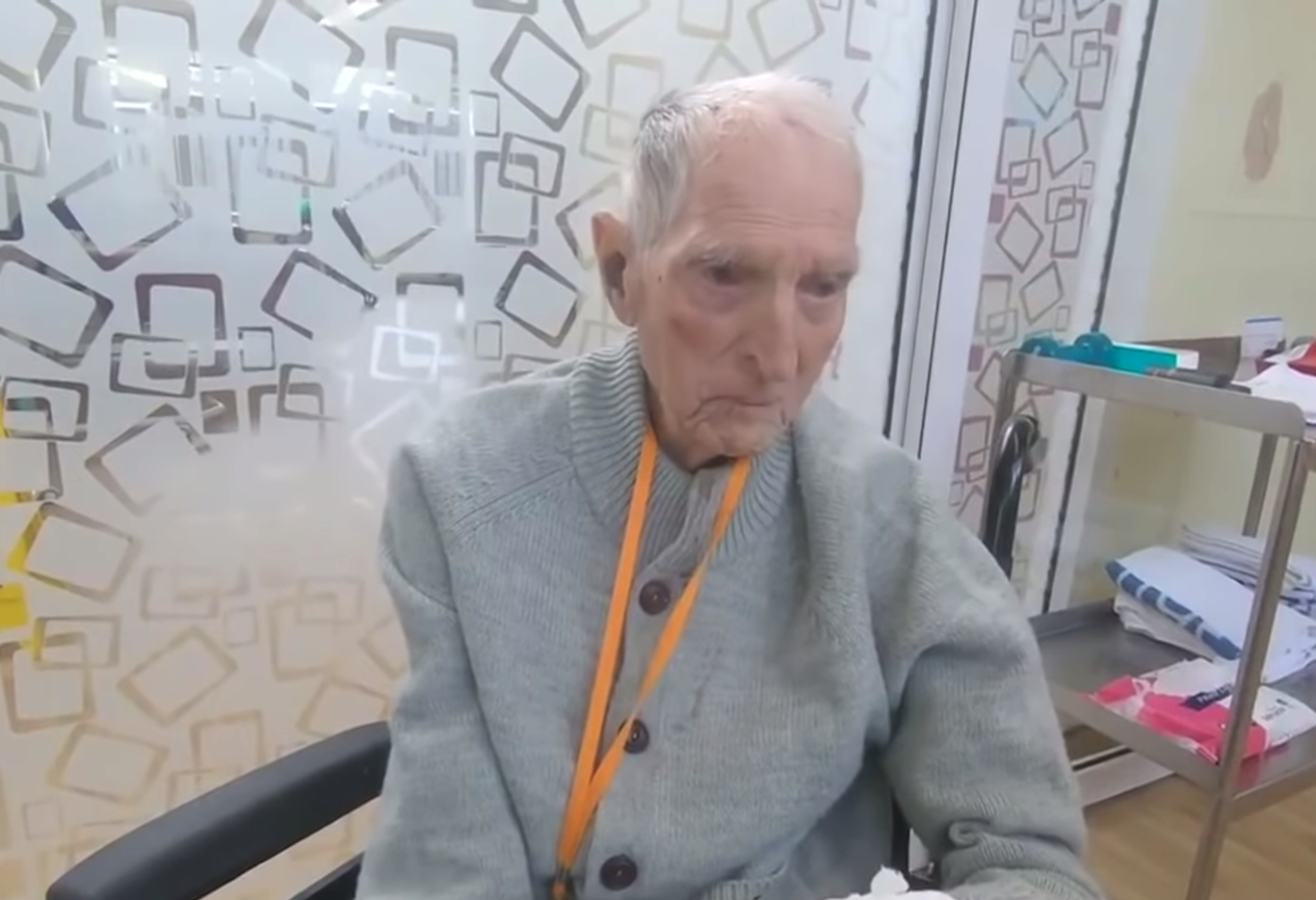
WWII veteran Albert Chambers, 99, is discharged from hospital after surviving Covid-19. Credit: YouTube / Telegraph
What we call “age” is usually the “chronological age” that simply indicates the passage of time since birth. As reminded by the British Society of Gerontology, biological age is a more appropriate indicator of physiological decline. In other words, our chances of survival will depend on our lifestyle, activity level, immune system and pre-existence of certain diseases and conditions.
These Covid-19 statistics also do not tell us how much our communities lose from their confinement. Many people in their 60s, 70s, and beyond are working; caring for grandchildren, for a spouse, or for a friend. One in five people aged between 70 and 85, over 1.5 million people, volunteer in their communities. And as recalled by the WHO, the vast majority of older people are leading independent lives.
The vulnerability discourse overruns older people’s important contributions to our economies (expected to rise to £77 billion by 2030), but also to our lives as spouses, parents, friends, mentors, and neighbours. “We need to give voice to older persons who feel left out and promote a positive image of older persons. How older people contribute to the economy is not measured by GDP”, said David Luxton from the Civil Service Pensioners’ Alliance.
Older people: a boon, not a burden
Casting all older people as highly vulnerable and frail creates an attitude that we have no obligation to prevent their deaths. Thousands of examples of this kind of stereotype can be found on social media, where posts making light of older people dying from Covid-19 are abundant. By generalising older people as “doddery” and burdensome, we risk creating a perception that their lives are less valuable, or even expendable.
The biggest potential danger of this narrative is that the government and health chiefs may push older people down the list of priorities in situations where resources are scarce. As it stands, the government is not currently counting deaths in care homes. Age UK has raised concerns about the inclusion of age – alongside frailty and underlying conditions – in a new NHS-developed “scoring” tool to help clinicians decide who to admit to intensive care units. The charity also has concerns about reports that a care home and a number of GP have been asked to pressure older people into signing do not resuscitate forms.
Caroline Abrahams, Age UK’s charity director, told Huff Post: “Thinking ahead about what kind of treatment you would prefer to have, or not have, if you become seriously ill is a thoroughly sensible thing to do, but especially at a time like this the topic needs to be approached with great sensitivity.”
“Conversations around ‘advanced care planning’, as it is called, should be shared between patients, healthcare professionals and families, based on an honest assessment of the risks and benefits, and factoring in people’s wishes and preferences.”
Whereas some older persons will have underlying conditions that impact their chance of surviving intervention, non-medical criteria such as age or disability should never be a criterion for triage – the process by which medics prioritise patients.
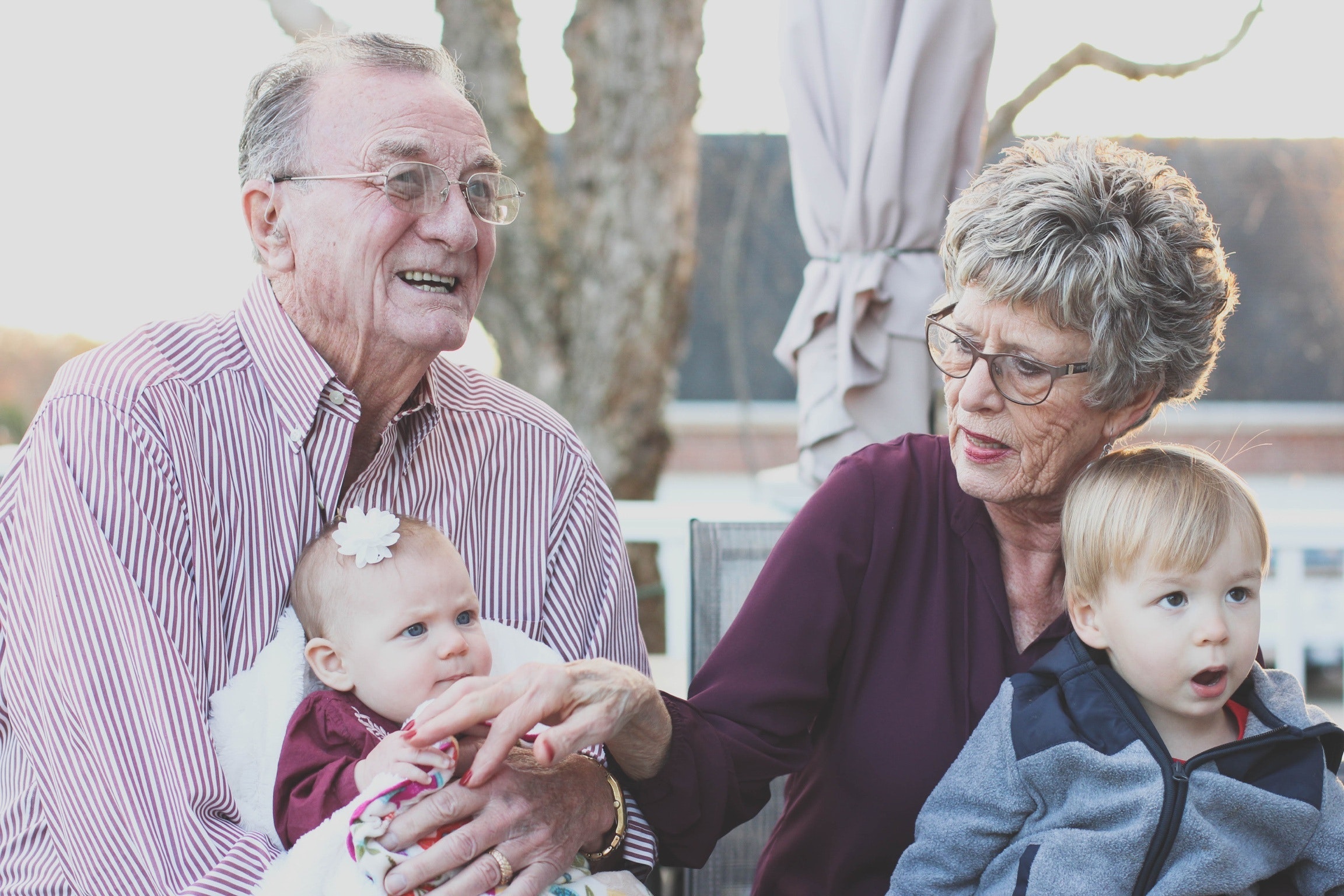
A stock image of an older couple looking after new borns. Credit: Pexels
When older people are seen as inevitably vulnerable, their support needs may not be met. Our recent paper explains that older persons in need of support may be left unattended as a result of physical distancing and shortage of care workers due to the pandemic. Measures taken as a response to Covid-19 should never be an excuse to cut short on people’s support on which depend their health, wellbeing, or capacity to live independently.
The recently adopted Coronavirus Act temporarily suspends most of the duties local authorities must adhere to in the Care Act 2014, including the duty to assess and meet care needs. As a consequence, it has been argued that many people who require support might be left with no entitlement to care, at a time when their care needs may have increased due to containment measures. The Act states that local authorities must provide care if not doing so would amount to a human rights breach. It has been argued that this a “low bar” for what support council must provide and it is unclear how such human rights assessments will be made.
As plans on ending confinement are being devised across Europe, a narrative framing older persons as uniquely vulnerable carries the risk to see older persons’ human rights being restricted for longer than for the general population, as suggested by the recent European Roadmap to lifting coronavirus containment measures.
Looking Ahead
According to human rights standards, public health emergencies, such as Covid-19, can justify restrictions on rights as long as those are proportionate, strictly necessary, limited in time and applied in a non-discriminatory way. At the same time, special measures are needed to ensure that those who are most at risk are adequately protected. But is chronological age the best indicator of vulnerability to define the threshold for extending the period of self-isolation? Are alternatives like early and mass testing being explored? Is the adverse impact of long-term physical distancing adequately considered?
Physical distancing can have dramatic consequences on people’s mental and physical health. The WHO warns of the stress those measures can have on the population, especially for those living in isolation or with cognitive decline. Unless older people are seen as truly equals, measures to boost the economy are likely to be prioritised ahead of ensuring that people who require additional protection get the support they need.
Exit strategies need to thoroughly consider the effect on individual rights and societal perceptions of older persons. If human rights in older age are to be equally respected, we need to go beyond the vulnerability label, which can become a cause for bias. Older persons’ autonomy, agency and contributions must not be undermined. In short, despite often being well-intentioned, the vulnerability narrative can fuel ageism and increases the risk to pit generations against one another.
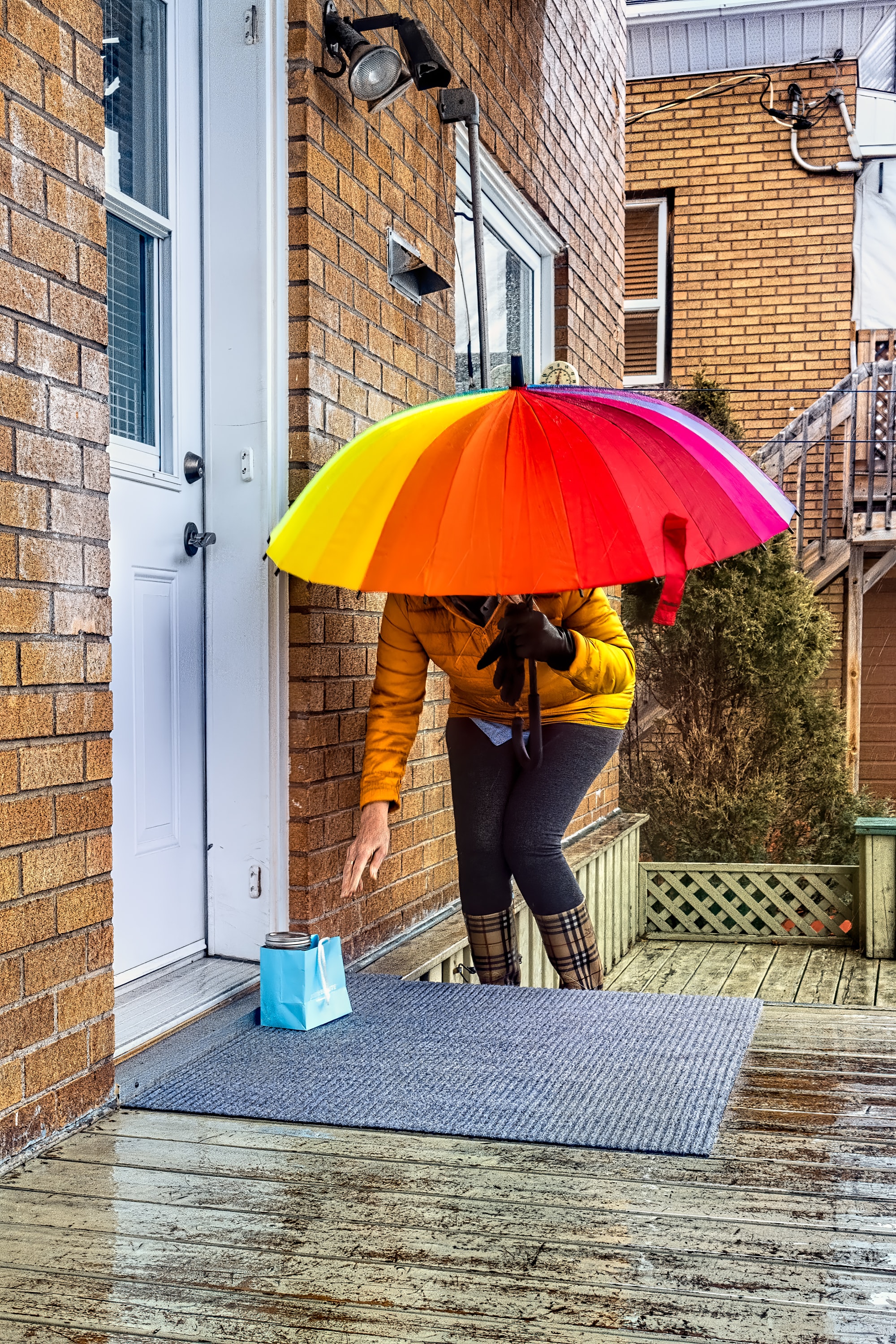
‘Older persons’ autonomy, agency and contributions must not be undermined’. Credit: Unsplash
Portraying older persons as vulnerable is not an inevitability. During the pandemic, older people have been asked to continue working or to return to work to support the efforts in emergency services, like in the healthcare sector. The generalised lock-down measures have generated unique waves of solidarity, connected new pen friends, and reminded us of how precious we are for those who love us. The spontaneous intergenerational cooperation that has emerged is building a case for itself: “we survived previous crises because of solidarity between generations. And that this is the way forward”.
The pandemic is an opportunity to shift our thinking and reset our priorities. The HIV crisis unleashed shameless stigmatisation of LGBT+ people, who were at higher risk of contraction. We should not let Covid-19 be an excuse to stigmatize older persons, as if they were “others”. We should instead recognise that every life matters.
Ageing is inevitable, and alongside might come forms of vulnerability. Vulnerability – regardless of age – is never the problem; our incapacity to accept it is. Instead of pointing fingers at those who need support, we could ensure that no one finds himself or herself with unmet needs.
Offering support is not a choice or a charity, it’s a human rights obligation. We all have an equal right to support and protection if we find ourselves in a situation of vulnerability, simply because we are humans. Chronological age does not change that.
The views expressed in this article are those of the authors and do not necessarily reflect the views of EachOther.

